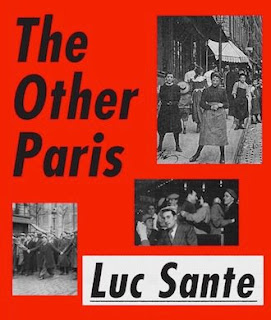Note: This post has been updated (September 2019) based on new information from the family. See new post for a photo of Alexandra's sister Marie. Thanks, JH.
According to the inscription below the image, the subject of this carte de visite was named Alexandra Marie Fulton de Lipowski. The photograph was taken in 1887 by the studio of Photographie Prost, also known as Bruant, in Meaux, a bit east of Paris.
The young woman can fairly safely be identified as the daughter of Gen. Ernest de Lipowski (1843-1904), a French military officer who served with distinction in the Franco-Prussian War. His daughter Alexandra was born on May 28th, 1874, and thus would have been twelve or thirteen at the time this photograph was taken. Her mother, Marie Eggerickx, died in 1875, and her father remarried a year later, to an English woman named Marianne Eastwood. Alexandra Marie (she also went by Alexandra Mary) eventually married a prominent French architect, Charles Blondel (not to be confused with the more famous psychologist of the same name), who died in 1912, and then married one François Geanty five years later. She died in 1971.
Ernest de Lipowski (more fully Joseph Antoine Ernest, Comte de Lipowski) was a French-born descendant of Polish aristocracy, though one document suggests that his parents had at some point resided in Spain. In October 1870, he commanded a unit of French
francs-tireurs that temporarily held off a much larger force of German infantry at
Châteaudun, and for his service he was made a Chevalier of the Légion d'honneur. Towards the end of his life he served in the Russian Army.
De Lipowski's career was evidently distinguished, but it wasn't entirely without stain. In 1873 or 1874 he was fined and sentenced to a month in prison for
escroquerie — a type of fraud. The gist of the accusation seems to be that he traded on his laurels (and perhaps on assurances of a fortune he did not in fact possess) to run up debts he didn't intend to pay off.
The whole affair strikes me, frankly, as a bit odd. Légion d'honneur archives preserved in
the Base Léonore contain various documents related to the matter, most of them written longhand and with elaborate formality by various functionaries of the French government. Several of the documents suggest that de Lipowski was at least temporarily stripped of his title in the Légion d'honneur (and perhaps of his pension as well) as a result of his conviction, yet by 1880 he had ascended to the higher rank of
officier in the Légion. Whatever it was all about, it appears to have eventually blown over. There is
a bust of de Lipowski surmounting his tomb in the Cimetière du Montparnasse.
Below: From the Base Léonore, the 1873 judgment against Ernest de Lipowski, his death notice from 1904, and a mention of Alexandra's marriage in 1901.


















